Hello again, Global Impact readers:
With the coronavirus disrupting every aspect of our lives these days, it has predictably thrown a spanner in the works of the international sporting calendar, which means the sun of the 2020 Summer Olympics in Japan is being replaced by the snow and ice of the Beijing Winter Olympics just 180 days later instead of the usual two years.
The build-up has been dominated by which politicians or heads of state will attend, rather than who will qualify for the events themselves, and by debate over whether they should actually be taking place in China.
This week Josh Ball, the Deputy News Editor for Sport and Racing here at the SCMP, brings us up to speed ahead of the opening ceremony on Friday that kicks off two weeks of winter sport.
Josh and his team will be making sure you don’t miss a goal, salchow or backside 180 with a newly launched Beijing Winter Olympics 2022 microsite.
Best,
Andrew Mullen
Production Editor, Political EconomySport has so far played second fiddle, but now it’s time for athletes to do the talking in Beijing
The Beijing Winter Olympics finally gets under way on Friday, and maybe now we will be able to just sit back and enjoy the world’s best athletes putting on a display of sporting prowess that is likely to inspire and excite in equal measure.
It certainly feels like the sport has played second, or even third fiddle, to everything else going on in the world at the moment, which is hardly surprising given the unprecedented times we find ourselves in.
This is the second Olympics to take place in the midst of a pandemic, and China’s zero-Covid policy meant there was always going to be a far different atmosphere to that of Tokyo in the summer.
Once again, there will be no spectators, but while athletes could mingle with the public and explore their surroundings in Japan, a strict “closed-loop system” in Beijing means any movement will be highly restricted.The surge of the Omicron variant has also set Chinese officials on edge, making the job that much harder for International Olympic Committee executive director Christophe Dubi.
Dubi is the man responsible for ensuring the Games go off without a hitch, and he has already said the IOC will leave “no stone unturned” to ensure a safe Olympics.
Given that some 25,000 participants from around the world are expected to descend on Beijing, what “safe” means is anyone’s guess, but with over 100 positive Covid tests inside the bubble, and the daily reporting of athletes unable to make the journey as planned, seem to suggest that the coronavirus will have its part to play no matter what.
If that weren’t enough, there are various machinations and tensions in the political arena to contend with. Diplomatic boycotts, alleged human rights abuses, China v the US, the US v Russia, China v the West.
Soft and hard power moves are being made on an almost daily, if not hourly, basis. And rather than providing the backdrop to one of the biggest sporting events in the world, it feels as if the roles have been reversed.
Despite what China says publicly, sport and politics have always mixed, and the central government is as adept as anyone at turning these things to its advantage.
If the 2008 Games were a global coming-out party for China on the world stage, this represents an opportunity to cement its place among the superpowers.
But in a country where image is everything and opposition is bad for your health, athletes have already been warned that any attempts to protest during the Games will be dealt with “according to the law”.
How that will gel with the inevitable questions and comments surrounding the fate of tennis player Peng Shuai is hard to judge, but it’s safe to say that the censors are likely to be working overtime in February.
Now though, finally, the sport is about to start, and amid everything else that has been going on, you could be forgiven for missing the fact that Hong Kong is sending its most athletes to a Winter Games ever.
Short-track speed skater Sidney Chu and skiers Adrian Yung and Audrey King will fly the city’s flag in Beijing as part of a 13-strong delegation.
This year is also something of an anniversary for Hong Kong, with 2022 marking two decades since the city’s first Winter Olympians, speed skaters Cordia Tsoi and Christy Ren, took to the ice in Salt Lake City.
The Winter Olympics have not traditionally held the imagination of the city’s residents, but the historic success of their Summer counterparts in August has created more of an interest.
While the chances of Chu, Yung and King repeating the medals-winning feats of the summer are slim at best, strange things happen at the Games. Just ask Australian short-track speed skater Steven Bradbury.
So, to the Games, and the crowning of new champions and the hailing of established stars. China’s hopes for a successful Winter Olympics rest with fan favourites Eileen Gu, figure skater Zhu Yi and snowboarder Su Yiming.
In many ways, being a superpower on the slopes is just as important as being one off it, which is why, outside of sending athletes to Norway to learn from the best cross-country skiers in the business, China is also looking to open up its winter sports tourism industry on the back of the Olympics.
There are many aspects to this next two weeks that will have implications beyond gold, silver and bronze medals. Watching how it all plays out could well be the most fascinating part.
- South China Morning Post, SCMP -
Hello again, Global Impact readers:
With the coronavirus disrupting every aspect of our lives these days, it has predictably thrown a spanner in the works of the international sporting calendar, which means the sun of the 2020 Summer Olympics in Japan is being replaced by the snow and ice of the Beijing Winter Olympics just 180 days later instead of the usual two years.
The build-up has been dominated by which politicians or heads of state will attend, rather than who will qualify for the events themselves, and by debate over whether they should actually be taking place in China.
This week Josh Ball, the Deputy News Editor for Sport and Racing here at the SCMP, brings us up to speed ahead of the opening ceremony on Friday that kicks off two weeks of winter sport.
Josh and his team will be making sure you don’t miss a goal, salchow or backside 180 with a newly launched Beijing Winter Olympics 2022 microsite.
Best,
Andrew Mullen
Production Editor, Political EconomySport has so far played second fiddle, but now it’s time for athletes to do the talking in Beijing
The Beijing Winter Olympics finally gets under way on Friday, and maybe now we will be able to just sit back and enjoy the world’s best athletes putting on a display of sporting prowess that is likely to inspire and excite in equal measure.
It certainly feels like the sport has played second, or even third fiddle, to everything else going on in the world at the moment, which is hardly surprising given the unprecedented times we find ourselves in.
This is the second Olympics to take place in the midst of a pandemic, and China’s zero-Covid policy meant there was always going to be a far different atmosphere to that of Tokyo in the summer.
Once again, there will be no spectators, but while athletes could mingle with the public and explore their surroundings in Japan, a strict “closed-loop system” in Beijing means any movement will be highly restricted.The surge of the Omicron variant has also set Chinese officials on edge, making the job that much harder for International Olympic Committee executive director Christophe Dubi.
Dubi is the man responsible for ensuring the Games go off without a hitch, and he has already said the IOC will leave “no stone unturned” to ensure a safe Olympics.
Given that some 25,000 participants from around the world are expected to descend on Beijing, what “safe” means is anyone’s guess, but with over 100 positive Covid tests inside the bubble, and the daily reporting of athletes unable to make the journey as planned, seem to suggest that the coronavirus will have its part to play no matter what.
If that weren’t enough, there are various machinations and tensions in the political arena to contend with. Diplomatic boycotts, alleged human rights abuses, China v the US, the US v Russia, China v the West.
Soft and hard power moves are being made on an almost daily, if not hourly, basis. And rather than providing the backdrop to one of the biggest sporting events in the world, it feels as if the roles have been reversed.
Despite what China says publicly, sport and politics have always mixed, and the central government is as adept as anyone at turning these things to its advantage.
If the 2008 Games were a global coming-out party for China on the world stage, this represents an opportunity to cement its place among the superpowers.
But in a country where image is everything and opposition is bad for your health, athletes have already been warned that any attempts to protest during the Games will be dealt with “according to the law”.
How that will gel with the inevitable questions and comments surrounding the fate of tennis player Peng Shuai is hard to judge, but it’s safe to say that the censors are likely to be working overtime in February.
Now though, finally, the sport is about to start, and amid everything else that has been going on, you could be forgiven for missing the fact that Hong Kong is sending its most athletes to a Winter Games ever.
Short-track speed skater Sidney Chu and skiers Adrian Yung and Audrey King will fly the city’s flag in Beijing as part of a 13-strong delegation.
This year is also something of an anniversary for Hong Kong, with 2022 marking two decades since the city’s first Winter Olympians, speed skaters Cordia Tsoi and Christy Ren, took to the ice in Salt Lake City.
The Winter Olympics have not traditionally held the imagination of the city’s residents, but the historic success of their Summer counterparts in August has created more of an interest.
While the chances of Chu, Yung and King repeating the medals-winning feats of the summer are slim at best, strange things happen at the Games. Just ask Australian short-track speed skater Steven Bradbury.
So, to the Games, and the crowning of new champions and the hailing of established stars. China’s hopes for a successful Winter Olympics rest with fan favourites Eileen Gu, figure skater Zhu Yi and snowboarder Su Yiming.
In many ways, being a superpower on the slopes is just as important as being one off it, which is why, outside of sending athletes to Norway to learn from the best cross-country skiers in the business, China is also looking to open up its winter sports tourism industry on the back of the Olympics.
There are many aspects to this next two weeks that will have implications beyond gold, silver and bronze medals. Watching how it all plays out could well be the most fascinating part.
|
Was this newsletter forwarded to you? Subscribe here
|

|
|
|
|
|
29 January 2022 |
|
Welcome to our 737 newly joined SCMP Global Impact readers who signed up in the past week.
|
|
Hello again, Global Impact readers:
With the coronavirus disrupting every aspect of our lives these days, it has predictably thrown a spanner in the works of the international sporting calendar, which means the sun of the 2020 Summer Olympics in Japan is being replaced by the snow and ice of the Beijing Winter Olympics just 180 days later instead of the usual two years.
The build-up has been dominated by which politicians or heads of state will attend, rather than who will qualify for the events themselves, and by debate over whether they should actually be taking place in China.
This week Josh Ball, the Deputy News Editor for Sport and Racing here at the SCMP, brings us up to speed ahead of the opening ceremony on Friday that kicks off two weeks of winter sport.
Josh and his team will be making sure you don’t miss a goal, salchow or backside 180 with a newly launched Beijing Winter Olympics 2022 microsite.
Best,
Andrew Mullen
Production Editor, Political Economy
Sport has so far played second fiddle, but now it’s time for athletes to do the talking in Beijing
The Beijing Winter Olympics finally gets under way on Friday, and maybe now we will be able to just sit back and enjoy the world’s best athletes putting on a display of sporting prowess that is likely to inspire and excite in equal measure.
It certainly feels like the sport has played second, or even third fiddle, to everything else going on in the world at the moment, which is hardly surprising given the unprecedented times we find ourselves in.
This is the second Olympics to take place in the midst of a pandemic, and China’s zero-Covid policy meant there was always going to be a far different atmosphere to that of Tokyo in the summer.
Once again, there will be no spectators, but while athletes could mingle with the public and explore their surroundings in Japan, a strict “closed-loop system” in Beijing means any movement will be highly restricted.
The surge of the Omicron variant has also set Chinese officials on edge, making the job that much harder for International Olympic Committee executive director Christophe Dubi.
Dubi is the man responsible for ensuring the Games go off without a hitch, and he has already said the IOC will leave “no stone unturned” to ensure a safe Olympics.
Given that some 25,000 participants from around the world are expected to descend on Beijing, what “safe” means is anyone’s guess, but with over 100 positive Covid tests inside the bubble, and the daily reporting of athletes unable to make the journey as planned, seem to suggest that the coronavirus will have its part to play no matter what.
If that weren’t enough, there are various machinations and tensions in the political arena to contend with. Diplomatic boycotts, alleged human rights abuses, China v the US, the US v Russia, China v the West.
Soft and hard power moves are being made on an almost daily, if not hourly, basis. And rather than providing the backdrop to one of the biggest sporting events in the world, it feels as if the roles have been reversed.
Despite what China says publicly, sport and politics have always mixed, and the central government is as adept as anyone at turning these things to its advantage.
If the 2008 Games were a global coming-out party for China on the world stage, this represents an opportunity to cement its place among the superpowers.
But in a country where image is everything and opposition is bad for your health, athletes have already been warned that any attempts to protest during the Games will be dealt with “according to the law”.
How that will gel with the inevitable questions and comments surrounding the fate of tennis player Peng Shuai is hard to judge, but it’s safe to say that the censors are likely to be working overtime in February.
Now though, finally, the sport is about to start, and amid everything else that has been going on, you could be forgiven for missing the fact that Hong Kong is sending its most athletes to a Winter Games ever.
Short-track speed skater Sidney Chu and skiers Adrian Yung and Audrey King will fly the city’s flag in Beijing as part of a 13-strong delegation.
This year is also something of an anniversary for Hong Kong, with 2022 marking two decades since the city’s first Winter Olympians, speed skaters Cordia Tsoi and Christy Ren, took to the ice in Salt Lake City.
The Winter Olympics have not traditionally held the imagination of the city’s residents, but the historic success of their Summer counterparts in August has created more of an interest.
While the chances of Chu, Yung and King repeating the medals-winning feats of the summer are slim at best, strange things happen at the Games. Just ask Australian short-track speed skater Steven Bradbury.
So, to the Games, and the crowning of new champions and the hailing of established stars. China’s hopes for a successful Winter Olympics rest with fan favourites Eileen Gu, figure skater Zhu Yi and snowboarder Su Yiming.
In many ways, being a superpower on the slopes is just as important as being one off it, which is why, outside of sending athletes to Norway to learn from the best cross-country skiers in the business, China is also looking to open up its winter sports tourism industry on the back of the Olympics.
There are many aspects to this next two weeks that will have implications beyond gold, silver and bronze medals. Watching how it all plays out could well be the most fascinating part.
|
|
|
|
|
|
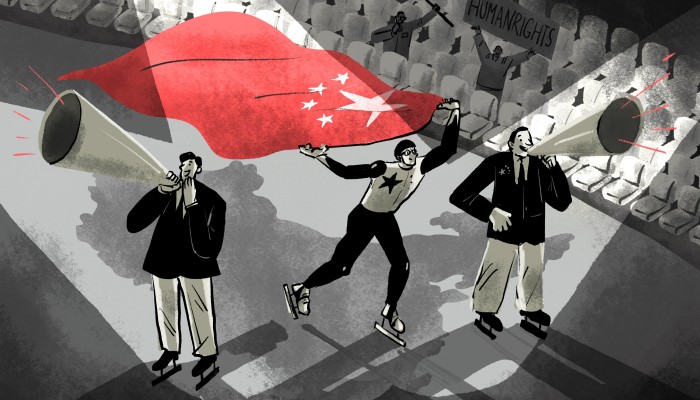
|
|
Winter Olympics: China, having learned the game as 2008 host, now plays by its own rules
|
| • |
For these Games, the International Olympic Committee needs Beijing; 14 years ago, China needed the IOC to showcase itself on the global stage | | | • | One thing hasn’t changed: human rights remain front and centre. ‘Xinjiang is the Tibet of 2008,’ says an expert in Chinese sports
|
|
|
On the eve of the 2022 Beijing Winter Olympics, an increasingly powerful China is drawing on hard-won lessons from hosting the 2008 Summer Games as it grapples with human rights protesters, diplomatic boycotts and pandemic challenges that threaten to tarnish its big show. In the intervening 14 years, China’s gross domestic product and military budget have tripled, disposable income has increased sevenfold and its diplomatic corps has become the world’s largest. Read more
|
|
|
|
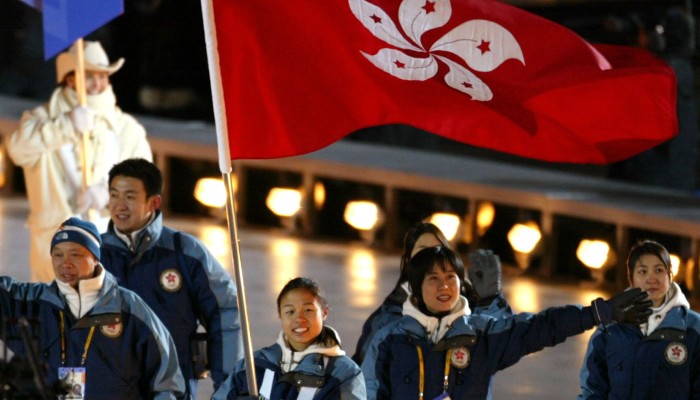
|
|
First Hong Kong athletes at Winter Olympics remember making history in Salt Lake City, 20 years on
|
| • |
Short-track speed skaters Cordia Tsoi and Christy Ren recall the day they carried their city’s flag into the opening ceremony | | | • | Pair can still remember the pride and excitement they felt at being at the 2002 Games
|
|
|
On a February evening in 2002, loudspeakers at the Rice Eccles Stadium in Salt Lake City boomed with a call for “Hong Kong, China” for the first time in history. That year marked Hong Kong’s debut at the Winter Olympics, with two short-track speed skaters representing the city. Read more
|
|
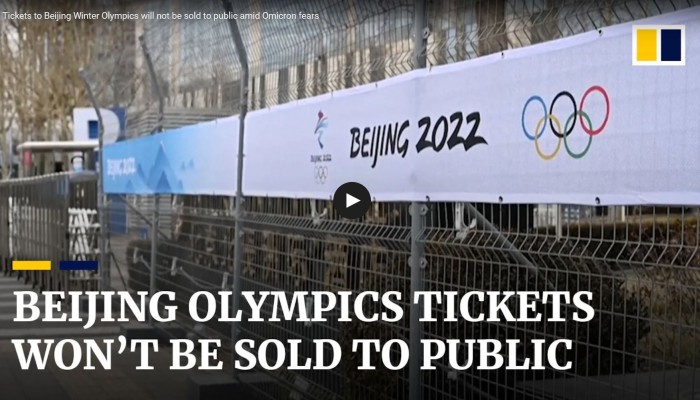
|
|
|
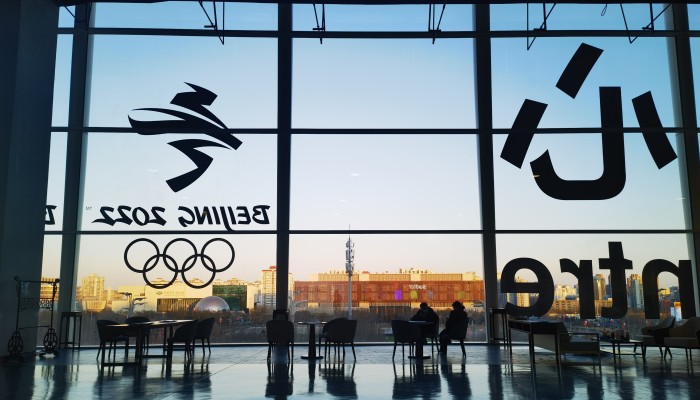
|
|
|

|
|
|

|

|
|
|
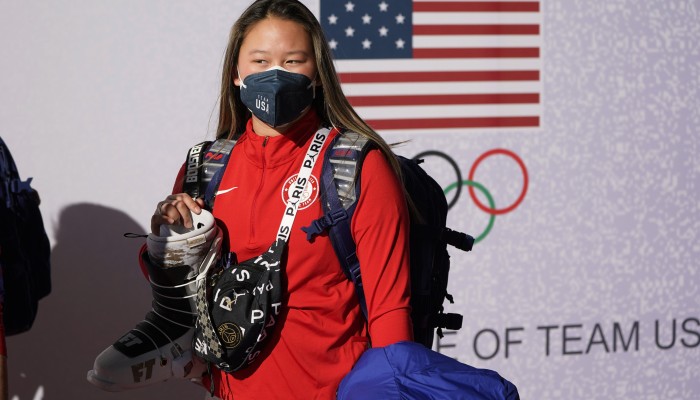
|
|
US lawmakers ask Joe Biden about steps to protect American Olympians in China
|
| • |
Members of Congress express concern about ‘athletes’ physical safety from politically motivated retribution while they are in Beijing’ | | | • | Request comes after Beijing warns that athletes whose behaviour or speech goes against Chinese regulations will be subject to punishment
|
|
|
A bipartisan group of US lawmakers wrote to President Joe Biden on Thursday, asking for details about how he will protect American athletes heading to the Beijing Winter Olympics and Paralympics from possible punishment or arrest. Citing Chinese authorities’ recent detention of several human rights activists leading up to the Games, the forced closure of news outlets in Hong Kong and Beijing’s detention of foreign nationals for geopolitical “leverage”, the 26 members of the House of Representatives expressed concerns about “athletes’ physical safety from politically motivated retribution while they are in Beijing to compete”. Read more
|
|
|
To keep track of the latest global news developments, follow our daily coverage on our website or be sure to check out our Beijing Winter Olympics 2022 microsite here.
In our next issue, we will look at the latest on China’s Zero-covid strategy.
We welcome your feedback. Email me at globalimpact@scmp.com or tweet me at @JoshBall76. Plus, be sure to check out our Sport newsfeed for the latest news and analysis.
All the best,
Josh Ball
|

|
|
Josh Ball
Deputy News Editor - Sport & Racing
|
|
|
|
|
|
| SCMP NEWSLETTERS THAT MAY INTEREST YOU |

China at a Glance
A wealth of insights giving you the inside story on China every day.
China Economic Update
The latest developments from trade relations to growth rates and other key economic data.
Inside China Tech
Our weekend newsletter covering the biggest stories and updates from the tech centres of China.
VIEW AND SIGN UP
|
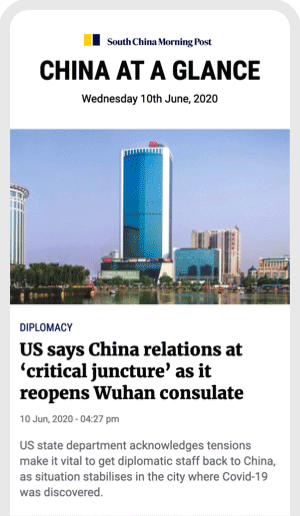
|
|
|
Download our app
To get push notifications direct and never miss a story as it breaks
|
|
|
|
|
Hong Kong
China
Asia
World
Economy
Business
Tech
Comment
|
|
|
|
This email was sent to [email]
unsubscribe from this list
update subscription preferences
South China Morning Post Publishers Ltd · 19/F Tower 1 · 1 Matheson Street · Hong Kong · Hong Kong
Copyright © 2022 South China Morning Post Publishers Ltd. All rights reserved.
|















